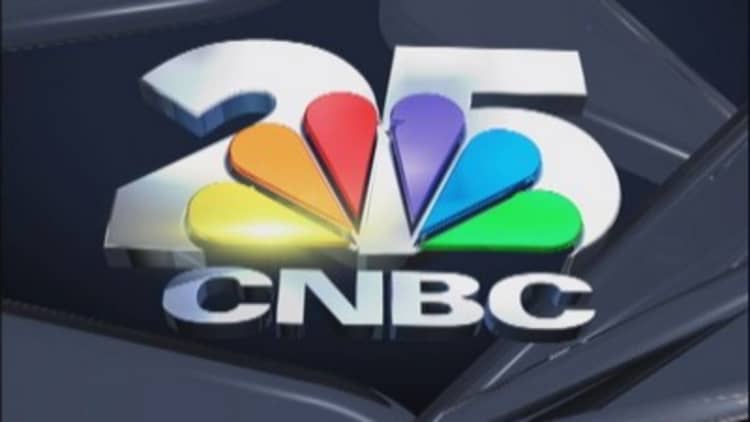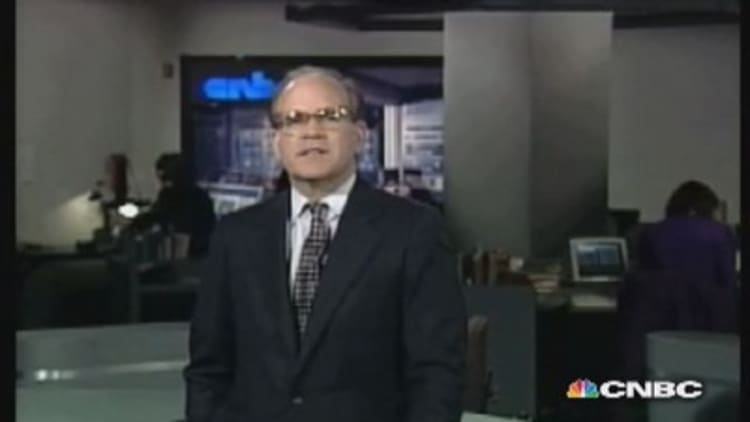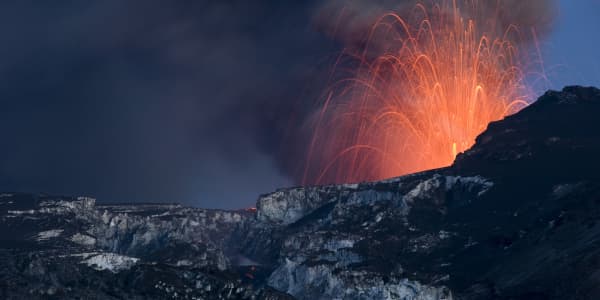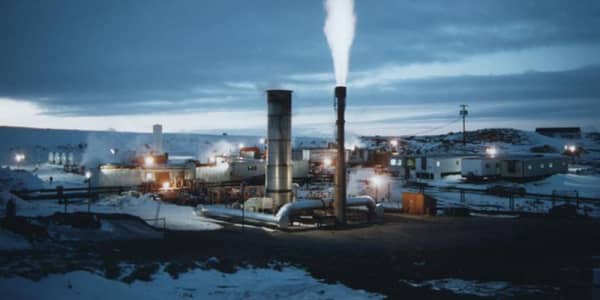
The presidency of George H.W. Bush was in its first hundred days. The World Wide Web was just a concept. Cable television—people still made the distinction back then—was mostly considered a joke. The economy was sputtering.
Stocks—still traded almost exclusively by real live people on an exchange floor—were priced in eighths. Not that it mattered to most of the general public. The big crash a couple years before had killed off what little enthusiasm they had; many concluded the market was rigged.
At NBC, "The Cosby Show" was smack in the middle of its legendary run and the network was riding high. But Chairman Robert C. Wright, and his boss, General Electric Chairman Jack Welch, were looking to the future. To them, the course was obvious. Start a cable channel. Devoted to business news. On the eve of a recession.
Read More Happy 25th birthday, CNBC!
On April 17, 1989, income tax day, CNBC was born. Twenty five years later, CNBC is "the recognized world leader in business news," indispensable to CEOs and small investors alike. My, how time flies.
Of course, the early days of CNBC were anything but clear cut. Our original name, the Consumer News and Business Channel, was evidence enough that the mission was muddled to say the least. Creating a 24-hour news channel in a fraction of the time it takes to develop a half-hour sitcom, NBC had cobbled together an unusual assortment of talent for its first foray into cable news.
Financial news on television had been around for a while, so among the first hires was one of the breakout stars of the well-established Financial News Network (FNN), Sue Herera. Mark Haines, a journeyman local news anchor from Philadelphia with a booming voice and a business brain, made the trip to New Jersey. There was a hodge-podge of national and local news people willing to take a flier on this strange new venture, among them a 29-year-old weekend news anchor from Grand Rapids, Mich., with a remarkably full head of hair. In prime time, Dick Cavett and John McLaughlin had talk shows. Hodge-podge indeed.
The early reviews were not kind.
"CNBC updates drier-than-dry financial news with drier-than-dry style," USA Today wrote. "The reporters and anchors are uninspiring." (That one hurt a little.)
Read MorePoll: The 25 most important of the last 25 years
The "endless" reports on the income tax deadline that first day added "little original insight about the yearly ordeal," the reviewer wrote, clearly not grasping the amount of care and effort the kid from Grand Rapids had put into his first national story, about how to file for an income tax extension.
In truth, the early programming was pretty bad, with segments about how to buy bed sheets running up against currency reports (remember, we were the Consumer News and Business Channel). The most redeeming aspects of the early days were the fact that much of the country could not see us—it would be another two years before CNBC was available in Manhattan—and an entrepreneurial, can-do spirit that took hold among the staff in those early days and somehow still has not let go.
Besides, soon enough, CNBC would get focused.
In 1991, FNN went bankrupt, and NBC won a court auction for the channel's assets, its subscribers, and some of the best business journalists around. Bill Griffeth, Ron Insana, and Joe Kernen were on our team now. CNBC was the only game in town…just in time for the dot-com era.
Read More#CNBC25 celebrates on social media
CNBC attracted more talent. An Institutional Investor writer named David Faber. A CNN producer with on-camera aspirations named Maria Bartiromo. Bob Pisani, the real estate reporter, turned his attention to the stock market—and so did CNBC as a whole.
As the '90s took off, CNBC became Must See TV—with an emphasis on must. It was virtually impossible to successfully navigate the market boom without paying at least some attention to CNBC. Not only did viewers know that, so did everyone who was anyone in business. Many of the world's top executives and investors had refused to do television before, but they came here.
Read MoreAmerica in 25 years: Here's what to expect
When the boom went bust, CNBC was vital as well, making sense of the dot-com crash and the 2008 meltdown.
Along the way there were moments. So many moments.
The Cramer rant. The Santelli rant. (Some people here are pretty passionate.) The Haines bottom. The Pisani report on Internet porn that brought NYSE trading to a halt. There were the penguins and the briefcase indicator. Rick Perry goes "oops."
There was Enron and WorldCom. Ackman and Icahn. Hurricane Katrina, and 9/11.
Read More Who mattered—and who didn't—in the last 25 years?
As you watched it all unfold on the screen, a talented team behind the scenes was making it all happen. You don't see these people, but Jim Forkin, Rich Fisherman, Pookey Preston, Jim Curtin, Chris Gaherty, Rick Tarbox, Lorraine Bennett, Don Jackson, Bill Lashell, Mike Luciano, Brigid Scire, Anne Bochicchio and Ron Warren have all been here since 1989. Others have been here almost as long. This industry is famous for fleeting careers, but at CNBC a 10-year veteran—we have lots of those—is a newbie. That's because this place has always been like a family.

In the early days, when NBC was a broadcast network and little else, the bosses talked about the need to become a networks company. Not only is today's NBC Universal exactly that, but so is CNBC—with channels across the globe, and a presence on every communications platform you can imagine.
That 25-year-old vision worked out pretty well.
Where will we be 25 years from now?
Stay tuned.
—By CNBC's Scott Cohn





